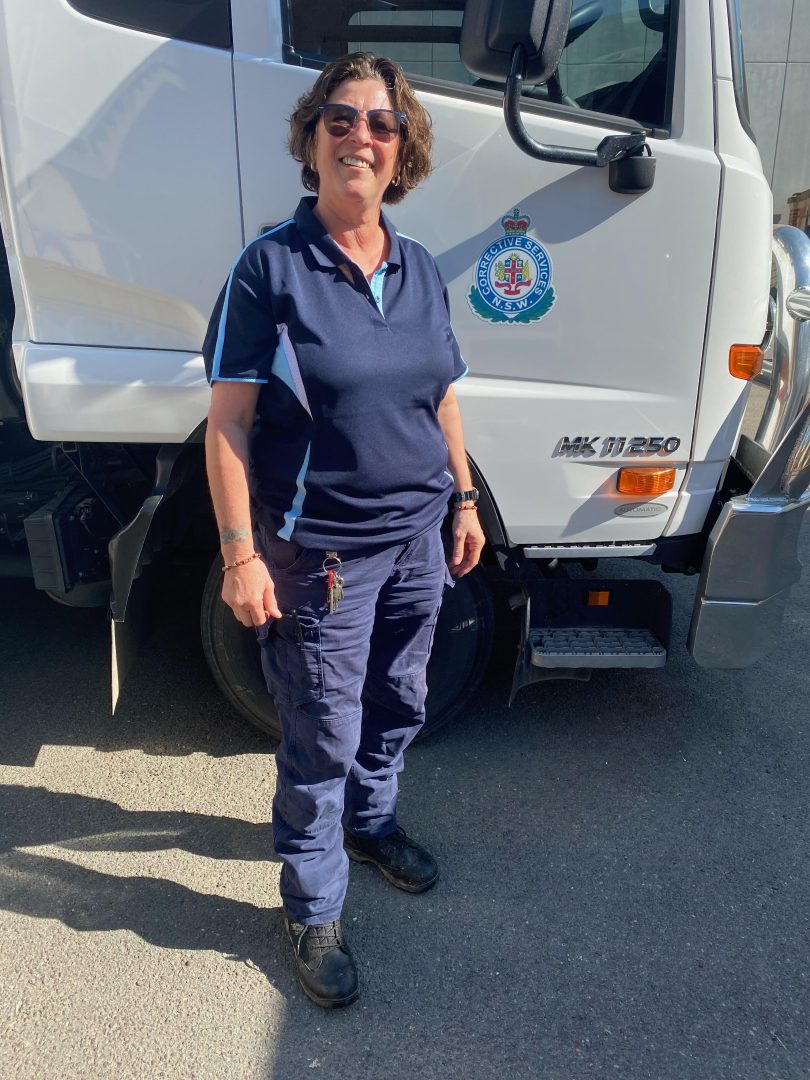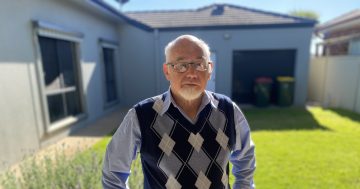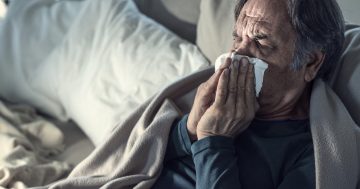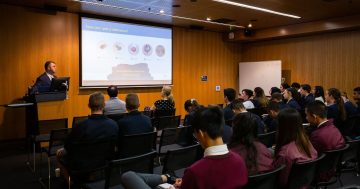
Sam Stephenson, from Crookwell, has warned women of the risks of delaying a screening mammogram. Photo: Supplied.
Women are being urged not to delay breast screening mammograms at a time when more appointments are postponed in rural and regional Australia.
The temporary suspension of the national breast screening program in mid-August has delayed vital early-detection screening for women aged over 40.
Hundreds of locations in NSW visited by mobile breast screening vans and four-wheel drives which travel to rural and remote locations according to a biennial schedule, have been disrupted.
Women with mammograms booked between 19 August and 3 September at the mobile breast screening van in Crookwell have been told they would be rescheduled. Boorowa, Braidwood and Young mobile services were also affected.
In a statement, BreastScreen NSW, said they continue to urge any women experiencing breast symptoms to see their regular doctor without delay or get a referral for diagnostic testing, which continues to be the nationally recommended pathway for symptomatic women.
Sam Stephenson from Crookwell, backed that call, warning women of the risks of delaying a screening mammogram.
“A mammogram saved my life,” Ms Stephenson said.
In 2019, Ms Stephenson was diagnosed with aggressive breast cancer without showing any of the usual symptoms.
“I was becoming a grandmother, so I wanted to get a pap smear, a mammogram,” she said.
“I had no symptoms. I went for my regulation mammogram – had I not gone I would probably be dead.”
Ms Stephenson was called back for an ultrasound following a routine mammogram and biopsy. She was diagnosed with an aggressive type of cancer, HER2-positive breast cancer, and hormonal cancer.
The treatment included chemotherapy for 12 months, surgery, radiation at a Canberra clinic, an hour-and-a-half trip from Crookwell which was taken daily for 30 days, and hormone therapy. She is now in remission.
“The big thing for me to sum up cancer is after it, you have to be grateful that you beat it, but you have to accept the body that cancer has left you with because it is not the same,” Ms Stephenson said.
“It is your whole body – it is everything and you don’t wish that on anyone.”
She said the free screening program should resume as soon as possible.
“Every woman is at risk of breast cancer, the statistics tell us that. If you have four sisters, one of you is going to have breast cancer. I really believe more people are dying from breast cancer and cancer in Australia every day compared to COVID,” she said.
Ms Stephenson is one of more than 26,000 signatures on a petition to the NSW Minister for Health and Medical Research Brad Hazzard for BreastScreen NSW screening services to resume.
The free program is for women aged between 50 and 74, but all women over 40 are eligible to screen. It aims to detect breast cancers at their earliest stages before symptoms, such as a lump, can be felt.
BreastScreen NSW would not say how many mammogram bookings have been suspended, but in south-eastern NSW in 2018-19, 56.3 per cent of women aged between 50 and 74 participated in the program, according to the Australian Institute of Health and Welfare (AIHW).
Figures show that in Goulburn-Mulwaree, 3570 women in this age bracket were screened in 2018-19 and 5276 women in Queanbeyan used the service. The Snowy Mountains region had the highest participation rate which saw 65.1 per cent of women screened in the same year.
In 2020, disruption to the program meant that the service has taken longer to reinstate in rural and remote areas as schedules were adjusted, a report, ‘Cancer Screening and COVID-19 in Australia’, by the AIHW showed.
BreastScreen NSW will resume screening as soon as possible and women will be updated as services return to normal, a spokesperson for BreastScreen NSW said.
“The current situation is being monitored daily and BreastScreen NSW is working closely with services at each local health district to resume screening as soon as possible. The decision to reopen will be made on a case-by-case basis according to the level of risk and operational considerations posed by the COVID-19 Delta strain in the area.”
Original Article published by Clare McCabe on About Regional.











